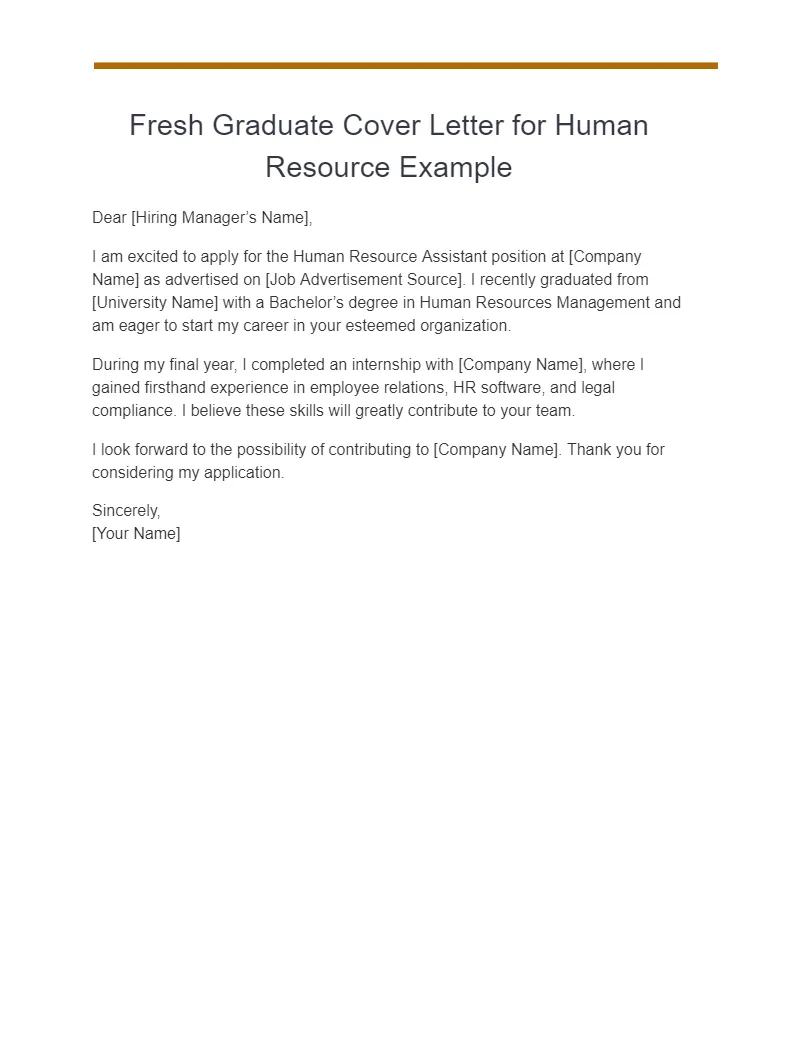Why a Cover Letter Matters for Fresh Graduates
As a fresh graduate stepping into the professional world, a well-crafted cover letter is your first handshake with potential employers. Unlike experienced professionals, your resume might be relatively light on direct work experience. This is where a cover letter becomes invaluable. It serves as a platform to showcase your personality, passion, and potential beyond the confines of your academic achievements. It allows you to explain why you’re interested in the specific role and company, and how your skills and experiences align with their needs. A cover letter is your opportunity to create a compelling narrative that encourages the hiring manager to delve deeper into your application. Neglecting a cover letter, or submitting a generic one, can signal a lack of attention to detail and a missed opportunity to make a strong first impression. Make sure that you show how you fit into the specific role and what you can do for the company.
Highlighting Your Skills
Identify and highlight the skills that are most relevant to the job you are applying for. These might include technical skills gained through coursework, projects, or internships. Equally important are your soft skills – communication, teamwork, problem-solving, and leadership. Provide concrete examples of how you have demonstrated these skills. For instance, if you’re emphasizing your teamwork abilities, describe a project where you collaborated with others to achieve a common goal, detailing your specific contributions and the positive outcomes. Quantify your achievements whenever possible. Did you improve efficiency by a certain percentage? Did you lead a team that accomplished a specific objective? These quantifiable results add credibility and impact to your claims. Remember, your goal is to demonstrate that you possess the qualities and abilities the employer is seeking, setting you apart from other applicants. This is crucial for fresh graduates, where experience is often limited, but potential is high.
Showcasing Your Academic Achievements
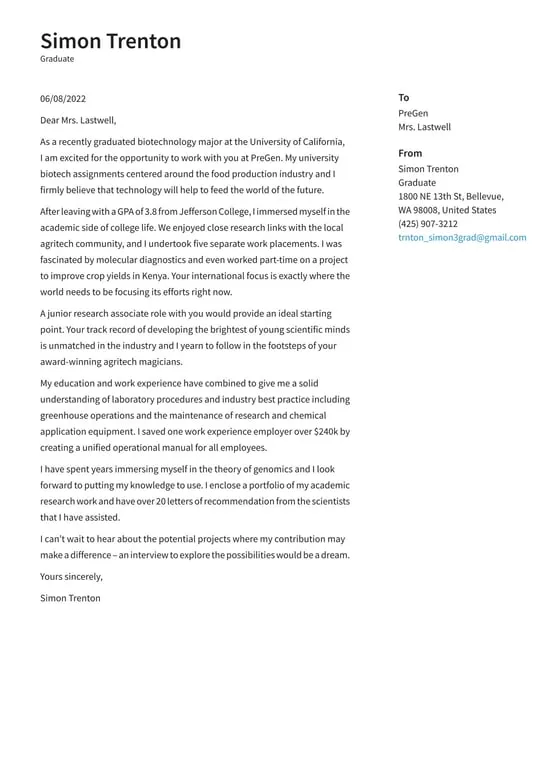
Your academic record is a significant part of your profile as a fresh graduate. Mention your degree, major, and any relevant coursework that aligns with the job requirements. If you have a high GPA or received academic honors, don’t hesitate to include them. These achievements demonstrate your dedication and commitment to learning. Furthermore, highlight any academic projects, research, or theses that showcase your knowledge and skills in action. Describe the problem you addressed, the methodologies you employed, and the results you achieved. Explain how these projects have prepared you for the role. Your academic accomplishments provide evidence of your potential to perform and excel in a professional setting. It’s important to tailor these to the specific job. Make the connection between what you did in college and what the employer needs. This provides a solid foundation for employers to see how you will be able to contribute to their team.
Emphasizing Relevant Experiences
Even as a fresh graduate, you likely have some form of relevant experience. This could be internships, part-time jobs, volunteer work, or extracurricular activities. Focus on experiences that have provided you with skills or knowledge applicable to the job you’re targeting. Describe your responsibilities and the tasks you undertook. Quantify your achievements whenever possible. Did you improve customer satisfaction? Did you manage a budget? Did you contribute to a project’s success? Show how your experiences, even if not directly related to the job, have equipped you with transferable skills such as communication, problem-solving, and time management. If you have limited experience, be sure to highlight your enthusiasm and willingness to learn, as well as the relevant soft skills that you can bring to the table. These experiences give potential employers an understanding of how you have developed both personally and professionally. They highlight to the employer that you are able to adapt to new environments.
Tailoring Your Cover Letter
One of the most critical aspects of a successful cover letter is tailoring it to each specific job application. Generic cover letters are easily identified and often discarded. Instead, take the time to carefully read the job description and identify the key requirements and qualifications. Then, customize your cover letter to address these specific needs. Explain how your skills, experiences, and academic achievements align with what the employer is seeking. Demonstrate that you understand the company’s mission, values, and the role you’re applying for. This involves researching the company and the role. Showing that you’ve put in the effort to tailor your application demonstrates genuine interest and professionalism. This will greatly increase your chances of making a positive impression and advancing to the next stage of the hiring process. Make sure that your cover letter isn’t just a summary of your resume. It should provide an explanation that is more personable, creating a narrative about you.
Researching the Company
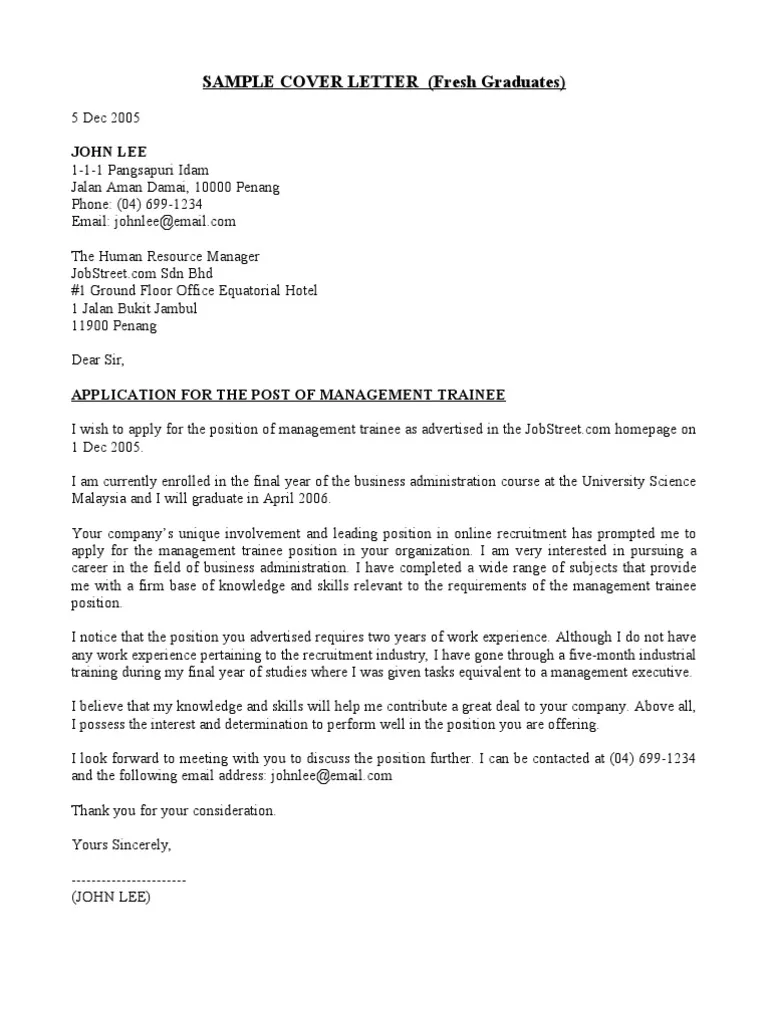
Before you start writing, research the company thoroughly. Visit their website, read news articles, and check their social media profiles to understand their business, values, and recent activities. Identify what makes the company unique and how the role you’re applying for contributes to their goals. Demonstrate this understanding in your cover letter by referencing specific projects, initiatives, or values that resonate with you. This shows the hiring manager that you are genuinely interested in the company and have taken the time to learn about their work. It also helps you tailor your letter more effectively, making it clear that you are a good fit for their culture and objectives. Researching the company shows your initiative and can make you stand out from other candidates. Understanding their needs will also make it easier for you to write your letter.
Addressing the Hiring Manager
Whenever possible, address your cover letter to a specific person – the hiring manager or the recruiter. Research the name of the person responsible for hiring for the role. This adds a personal touch and shows that you have paid attention to detail. If you can’t find a specific name, using a professional greeting like “Dear Hiring Manager” is acceptable. Avoid generic greetings like “To Whom It May Concern” or “Dear Sir/Madam.” If a specific name is provided, be sure to spell it correctly. This shows that you respect the reader and are attentive. Addressing the letter directly to the hiring manager can create an immediate connection, making your application more memorable. Use a professional and respectful tone throughout your letter to establish credibility and demonstrate your understanding of business etiquette. This small touch can have a big impact in setting a professional tone.
Using Keywords Effectively
Carefully review the job description and identify the keywords and phrases that the employer is using to describe the required skills, qualifications, and responsibilities. Weave these keywords naturally into your cover letter. This not only demonstrates that you possess the necessary skills but also helps your application get noticed by applicant tracking systems (ATS). ATS often scan cover letters and resumes for specific keywords, and the more relevant keywords you use, the higher your chances of getting your application noticed. Don’t overdo it – keyword stuffing can make your letter sound unnatural. The goal is to integrate keywords seamlessly while maintaining a clear and engaging narrative. Highlight the skills and experiences using the same language as the job description. Focus on those skills that the job application specifically requires. This will significantly increase your chances of being considered.
Formatting and Presentation
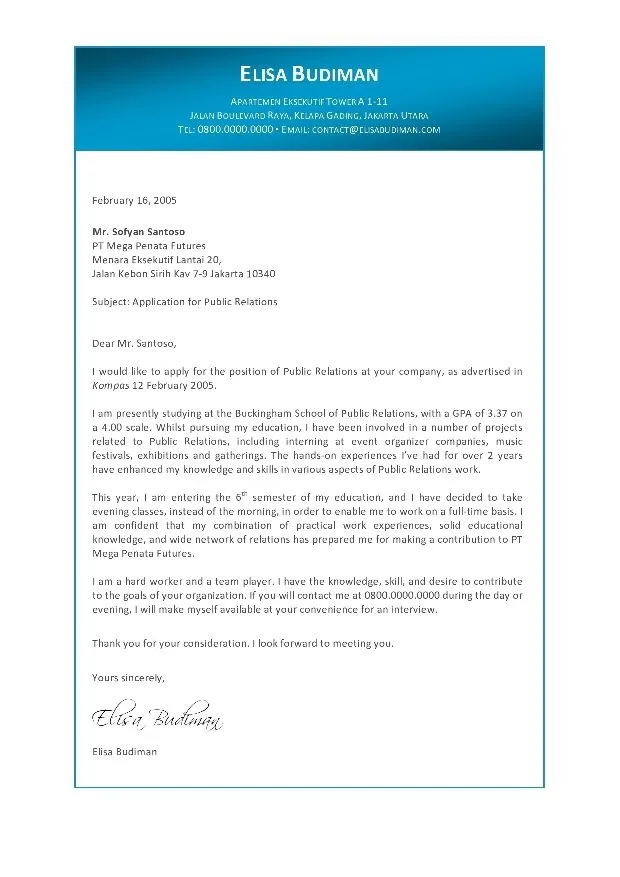
The format and presentation of your cover letter are just as important as the content. Use a professional font such as Arial, Calibri, or Times New Roman, and maintain consistent font sizes throughout the document. Ensure your letter is well-organized, with clear headings, paragraphs, and ample white space to enhance readability. Proofread your cover letter meticulously for any grammatical errors, spelling mistakes, or typos. Errors can create a negative impression and undermine your credibility. Also, keep the letter concise and focused. Aim for one page, highlighting your most relevant qualifications and experiences. Your goal is to grab the reader’s attention quickly and encourage them to review your resume. Ensure proper alignment and spacing to provide a clean and professional look. A well-formatted cover letter demonstrates your attention to detail and professionalism, which are critical in the job search.
Keeping it Concise
Keep your cover letter concise and focused. Hiring managers often have a large number of applications to review, so they appreciate a letter that gets straight to the point. Aim for one page in length, highlighting your most relevant skills and experiences. Avoid unnecessary details or repetition of information found in your resume. Start with a strong opening that immediately grabs the reader’s attention, then focus on the key aspects of your qualifications. Be sure to emphasize the key contributions that you can bring to the company. Use clear and concise language. Avoid jargon and overly complex sentences. The goal is to present yourself in a compelling and easily digestible manner. This will make it easier for the hiring manager to quickly assess your suitability for the role and encourage them to read your resume. This can be achieved by carefully selecting which information to include, and omitting anything that is not essential.
Proofreading Meticulously
Proofreading is an essential step in the cover letter writing process. Errors can undermine your credibility and make you appear careless. Before submitting your cover letter, carefully proofread it for any spelling mistakes, grammatical errors, punctuation errors, and typos. Read the letter aloud to catch any awkward phrasing or sentences that don’t flow smoothly. Consider using spell-check and grammar-check tools, but don’t rely on them completely. These tools can sometimes miss errors, so it’s crucial to review the letter yourself. Ask a friend, family member, or career advisor to proofread your letter as well. A second pair of eyes can often catch mistakes you might have missed. A clean and error-free cover letter demonstrates your attention to detail and professionalism, which are essential qualities for any job seeker. Make sure you do this before submitting the letter. This will provide you with the best results.
Choosing the Right Tone
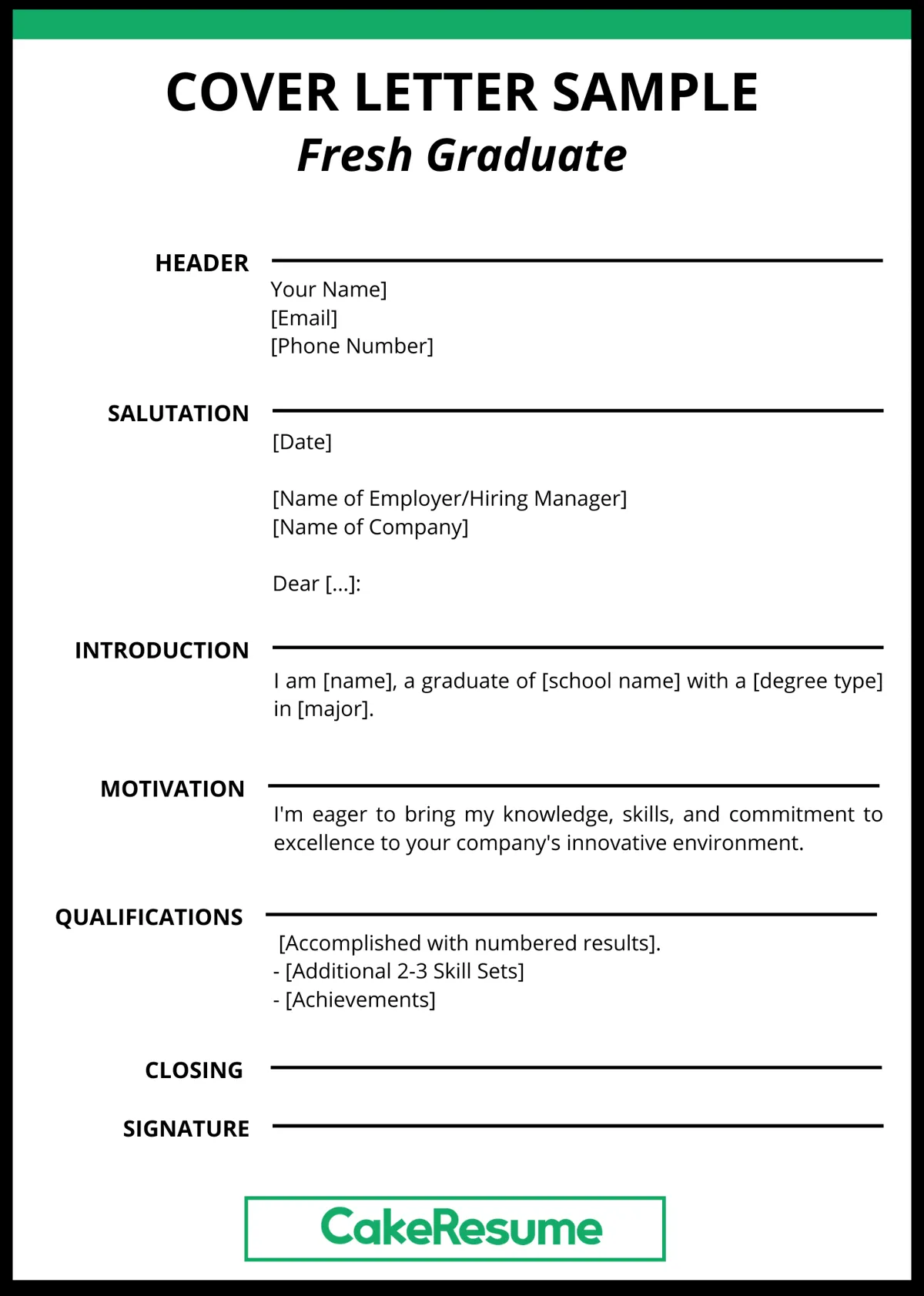
The tone of your cover letter should be professional and enthusiastic. Demonstrate your genuine interest in the role and the company, while remaining professional and respectful. Avoid using overly casual or informal language. Start with a confident opening that highlights your key skills and experiences, and make it clear why you are a good fit for the position. Be specific and use positive language to describe your achievements and potential contributions. Avoid negativity or complaining. The cover letter is your opportunity to sell yourself and showcase your value. Demonstrate enthusiasm by expressing your interest in the company’s mission and values, as well as the specific role you are applying for. A tone that is professional, enthusiastic, and tailored to the company will significantly improve your chances of making a positive impression and moving forward in the hiring process. Demonstrate confidence but do not brag. The right tone will make you memorable.
The Call to Action
Include a clear call to action in your cover letter. This is a statement that tells the hiring manager what you want them to do next. Common examples include requesting an interview, expressing your interest in discussing your qualifications further, or thanking them for their time and consideration. Make it clear what you are hoping to achieve. The call to action should be specific and tailored to the role and company. Restate your interest in the position, and how your skills and experiences align with their needs. Make it easy for the hiring manager to take the next step. Provide your contact information and a concise summary of your key qualifications. The goal is to encourage the hiring manager to take immediate action. A well-crafted call to action is essential in moving your application forward. Make it easy to follow up and keep it simple.
Expressing Enthusiasm
Expressing genuine enthusiasm for the position and the company is vital in a cover letter. Your enthusiasm can significantly improve your chances of making a positive impression and standing out from other candidates. Show how excited you are to work for the company by highlighting your interest in their mission, values, and recent activities. Mention specific projects or initiatives that resonate with you. Be specific about why you want the job, and what you hope to contribute. Enthusiasm demonstrates that you are genuinely interested in the opportunity and willing to go the extra mile. This is often more important for fresh graduates who may lack experience, but are full of energy and initiative. Showing enthusiasm will make the hiring manager want to learn more about you. It is a critical ingredient in setting you apart from other candidates and showing that you care about the company.
Providing Contact Information
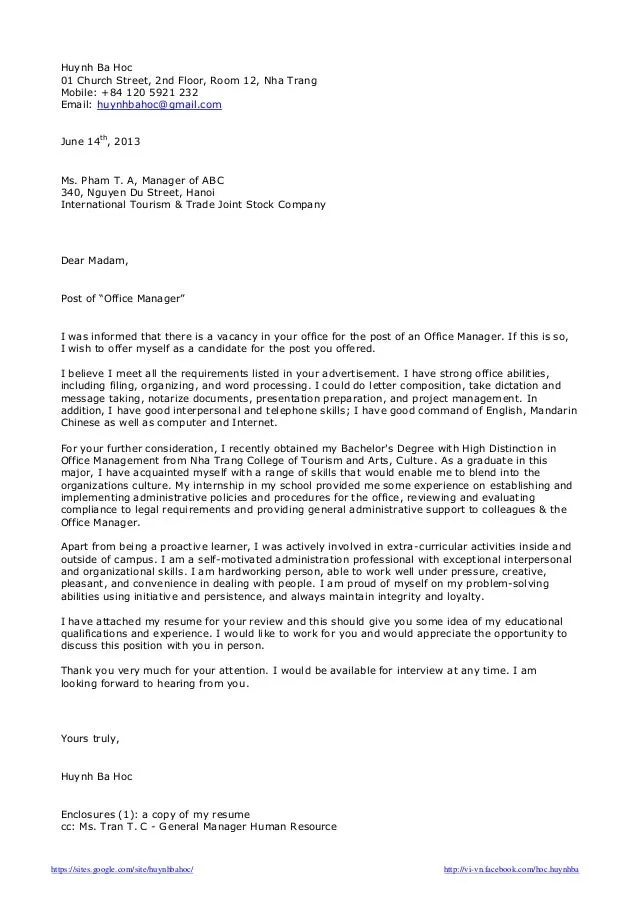
Make sure to provide your contact information, including your phone number and email address. Include your LinkedIn profile URL, if you have one. Ensure the contact information is accurate and up-to-date. This is crucial, as it is how the hiring manager will contact you to schedule an interview. Make sure your email address is professional. Avoid using an email address that contains nicknames. Keep the information simple and easy to find. Place your contact information in a prominent location, such as at the top or bottom of your cover letter. Double-check your information to ensure accuracy. Provide all relevant contact details, as this is the most important aspect of this section of the cover letter. This is your final chance to ensure a positive impression before the letter is submitted.
